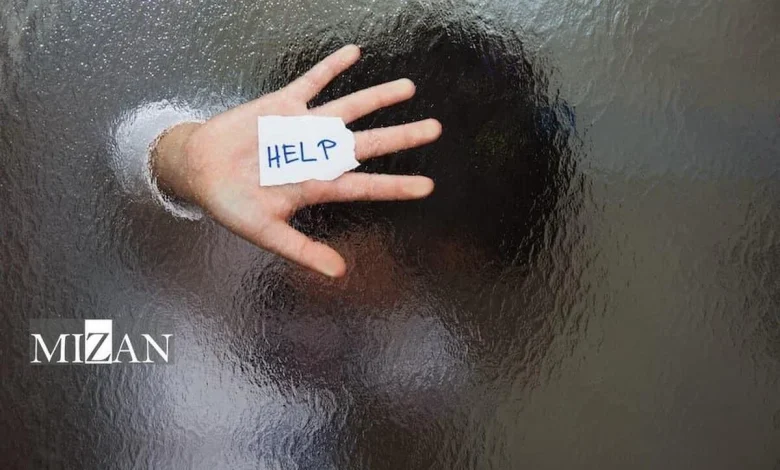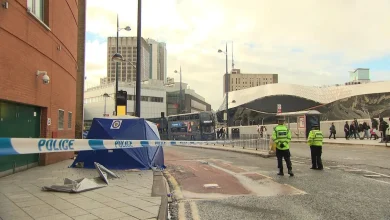A nation’s betrayal: How the UK failed its sexual abuse survivors

Mizan –
The systemic neglect of victims of sexual abuse in the United Kingdom — particularly in cases involving child exploitation gangs — stands as one of the country’s most significant social and judicial scandals in recent decades. This phenomenon has not only harmed thousands of children and adolescents but also exposed deep failures within Britain’s police, social services, and government institutions.
Two stories of sexual abuse have repeatedly drawn public attention in the UK. The first concerns Prince Andrew’s friendship with Jeffrey Epstein, the convicted sex offender, even after Epstein’s criminal conviction. The second involves child grooming and sexual exploitation gangs in towns such as Rotherham, Rochdale, and others.
Andrew has faced increasing pressure following the posthumous publication of Virginia Giuffre’s memoirs, in which she accused him of sexual assault. In 2022, Andrew settled a sexual assault lawsuit filed by Giuffre for an undisclosed sum.
Meanwhile, victims of grooming and sexual exploitation gangs have accused the British government of failing to investigate the crimes committed against them.
Joe Adetunji, an activist advocating for the rights of sexual abuse survivors, said:
“I work with survivors of child sexual abuse, including in Rotherham, and with the services that support them. While it would be wrong to claim that every survivor’s experience is identical, there are important similarities in their stories — and in the behavior of their abusers. Their backgrounds may differ, but child abusers, particularly in group cases, share certain traits.”
In her memoir, Giuffre described Andrew as entitled, saying it was as if “he believed sex with me was his natural right.”
This sense of entitlement — rooted in misogyny, objectification, and the dehumanization of certain girls and women — is a recurring theme in many cases of child sexual abuse. Offenders may maintain relationships with some women while still viewing the girls they abuse as “others,” undeserving of dignity and merely objects for use or exploitation.
Another common feature among such offenders in the UK is the commodification of women and girls. Epstein trafficked underage girls on his private jet to his island, where he traded access to them with powerful and famous men. He used his wealth and influence to exploit these girls, enhancing his status among his elite peers.
Similarly, victims of sexual exploitation in Rotherham and other towns were often trafficked by networks of taxi drivers.
Regardless of the financial sums involved or the form of exchange (money, status, or business favors), perpetrators typically viewed the women and girls they abused as means of advancing their own interests.
This exchange of money, respect, or access among powerful men also surfaced in Epstein’s case: investigations uncovered fawning letters from well-known politicians, including Donald Trump and Peter Mandelson.
The legacy of trauma
All survivors of child sexual abuse experience profound trauma during their formative years — shaping their sense of identity, self-worth, and their understanding of others.
Such trauma often leads to severe mental health impacts. Post-Traumatic Stress Disorder (PTSD) is frequently misdiagnosed as bipolar disorder, schizophrenia, or other chronic mental health conditions. Survivors are often stigmatized and blamed for their abuse, as their trauma symptoms are misinterpreted as personal dysfunction rather than evidence of harm inflicted upon them.
The effects of trauma also manifest physically — through chronic fatigue, persistent pain, or damage to the heart, brain, and nervous system. Many adult survivors have described lasting physical and emotional damage: being unable to leave their homes, or self-harming to cope with the physical memories of abuse.
When Giuffre died by suicide earlier this year, her family said: “Ultimately, the cost of the abuse was so great that Virginia could no longer bear its weight.”
The trauma of betrayal
The UK government’s investigation into grooming gangs has faced months of delay, after leadership candidates withdrew and several women resigned from the victims’ advisory panel.
It is unsurprising that survivors question the credibility of an inquiry overseen by professionals linked to police and social services — the very institutions they feel abandoned them.
Survivors of childhood sexual abuse consistently describe being abused, dismissed, and silenced by people in power — a repetition of the same betrayal they experienced as children at the hands of their abusers.
In this sense, Giuffre and the victims of the UK grooming gangs share a painful commonality: all have faced disbelief, intimidation, and further mistreatment for their courage to speak out.
British police are now reportedly investigating allegations that Prince Andrew asked his bodyguard for information about Giuffre. Reports suggest that the police failed to pursue allegations against Andrew that appeared in Epstein-related files.
Many survivors in Rotherham said they were in regular contact with police, who instead labeled them as “troublesome” or “problematic.” Victims were repeatedly ignored — a pattern that blames child exploitation victims for their own suffering.
As The Conversation noted: “Survivors often feel abandoned by the very institutions meant to protect them. Their hesitation to be represented again by those same services is entirely understandable.”





